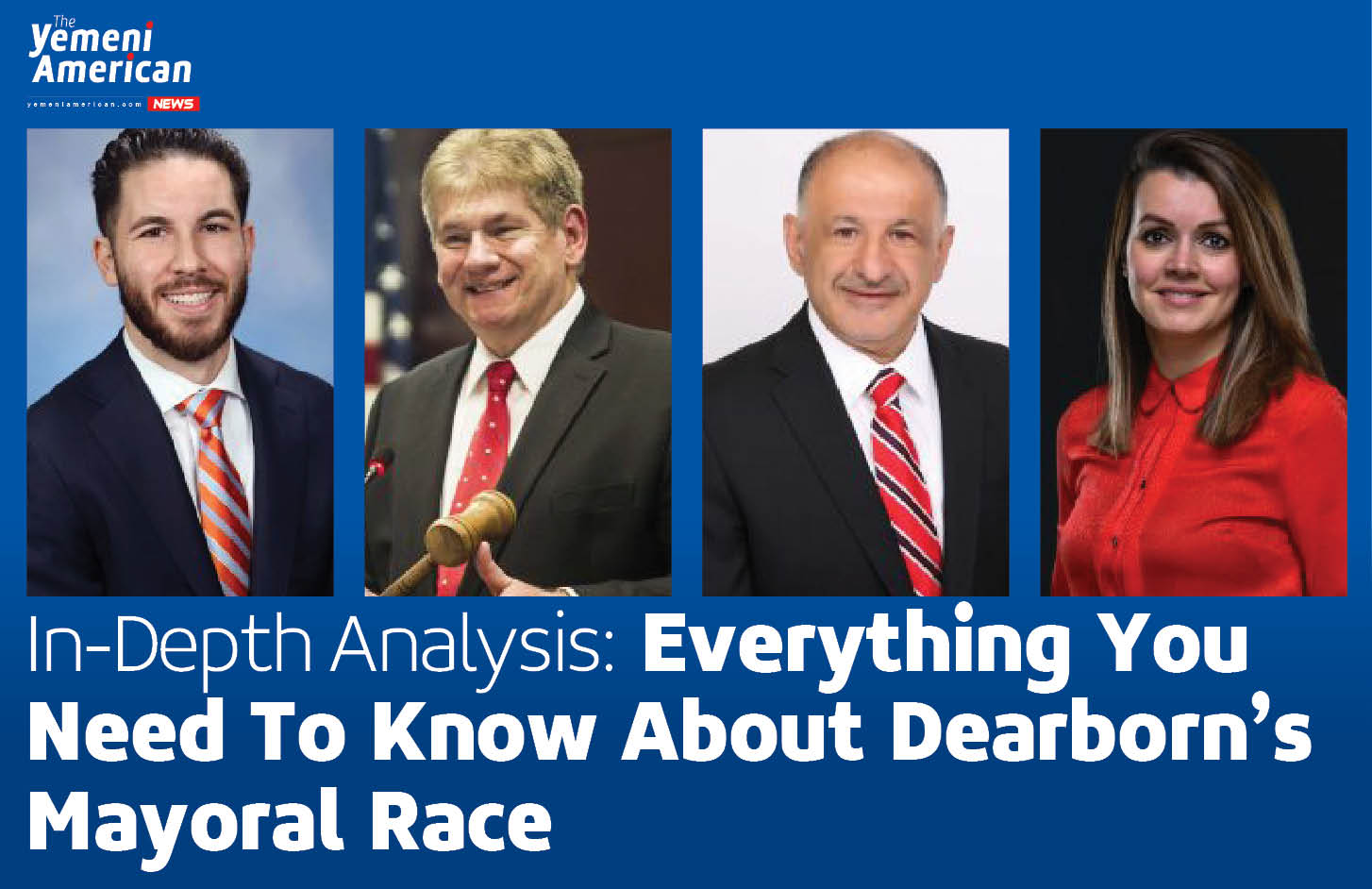By Brian Stone – Yemeni American News
DEARBORN, Mich. – For the first time since 1985 Dearborn voters will have to decide on a new mayor with no incumbent running for the position. With voters re-electing mayors in every election for longer than most residents have been alive, the next choice of mayor will have a massive impact on the future of the city.
To help voters understand who is running and what kind of strengths, opportunities and challenges face each candidate in the year ahead, the Yemeni American News has compiled the most comprehensive information and analysis about each candidate by any news organization to date. Because early campaign promises are slim and most candidates have nothing anywhere near a platform to examine yet, we’ll be looking into what the candidates say they’ll do at a later time.
Who’s Running?
At the time of this writing, four candidates have registered campaign committees with the Wayne County Clerk’s office. Those candidates are Gary Woronchak, Dearborn’s long-time County Commissioner and former state representative, Susan Dabaja, the President of the Dearborn city council, Hussein Berry, a long-time Dearborn school board trustee and businessman, and Abdullah Hammoud, Dearborn’s state representative for house district 15.
Two other candidates have announced but not yet submitted campaign committee statements of organization, and those are Thomas Tafelski, a former City Councilperson and Mayoral Candidate from 2017, and James Parrelly, a Dearborn businessman and former Mayoral candidate from 2017. We’ll be updating our coverage to include them once their campaign statements are filed.
What are the big issues?
Since the death of Mayor Michael Guido in 2006 and the appointment of Mayor Jack O’Reilly, the city’s faced some dramatic changes. During the recession, Mayor O’Reilly switched the city hall from the historic city hall, which is now a loft space for artists called ArtSpace, over to the corporate structure known as the Dearborn Administrative center on Michigan Avenue. He kept the city’s finances afloat, but at the cost of closing libraries, pools and bull-dozing beloved city landmarks like the water fountain outside the centennial library, which is now a veterans park.
His term has also been marked by a business-friendly attitude, both towards Ford Motors company and a more laissez-faire approach to allowing retail and housing development. In the last decade, he’s also overseen a massive expansion of public safety as a share of city government, which has skyrocketed from approximately 40% of the city’s budget, to greater than two thirds.
The Police Department has significantly reduced its use of force as the popular Police Chief, Ronald Haddad, has instituted reforms in training and procedure that many credit with making Dearborn a model for other communities. Crime is down in the city, but the Dearborn police now operate in an environment where residents are no longer giving police the benefit of the doubt when force is used on unarmed persons, and a spotlight is being raised by both activists and residents on the impact of policing on black persons who live, work and shop in Dearborn.
With many residents complaining about high taxes and a police and fire safety 3.5 millage tax that will be repealed by May of 2022 if not re-ratified by voters, issues that range from quality of life for residents, public safety as well as taxation and its impact on younger couples are all likely to be issues where candidates will distinguish themselves in the primary election.
The issues at stake involve the direction of the city going forward, including whether Dearborn continues to be a high-tax, high-value city, or a slimmer, less involved city where “anything goes” toward business and property development.
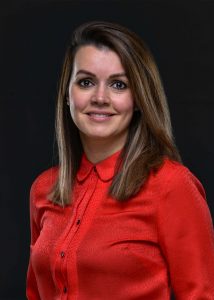
Susan Dabaja
Professional & Personal Life
Susan Dabaja is a successful local attorney who graduated from the University of Detroit Mercy law school at the top of her class. Her passion is in contract law and it shows in her approach to council business where she is fair but strict in her application of the rules.
Dabaja is a mother of three and a devoted wife, who is generally seen as an effective and smart leader on council. Her term as council president has gone without any scandal and no complaints from other councilpersons about unfairness or being excluded, which has not always been the norm in Dearborn.
Political Leanings: Centrist Moderate
Dabaja has been endorsed by both Republican and Democratic organizations in the past and has generally steered clear of hot-button issues on city business, maintaining that the non-partisan work deserves a non-partisan approach. Her approach to solving political problems shows an interest in building consensus across the liberal and conservative members of council.
Accomplishments
Dabaja has overseen ratification of the city budget with minimal controversy and lots of positive feedback from most of the council. Some of her landmark reforms include leading the passage of Dearborn’s first-ever environmental ordinance, something she said has been important to her as someone who grew up in the South End.
Dabaja has also played a major role in helping bring business into Dearborn, with the flagship development of the Wagner Place properties in West Dearborn’s downtown and the re-investment of Ford Motors company into Dearborn.
Dabaja helped produce the city’s form-based code in the West Dearborn downtown, which is credited with stopping the saga of copycat businesses moving into the downtown area. Of all the candidates, Dabaja is most closely tied to the agenda of Mayor O’Reilly, and most likely to share in both his friends and his enemies.
Campaign Strengths & Weaknesses
Dabaja comes into the race seen as a clear front runner because of her relevant city experience to the job of being a Mayor, her deep understanding of the inner-workings of city government and her ability to draw support across partisan and racial lines.
Her most recent campaign finance statement had a little over $3,600 on the books, but based on previous campaign fundraising, she’s expected to raise anywhere from $100,000 to $150,000 during the primary.
Dabaja is known as a strong campaigner, knocking on thousands of doors personally in every election. Residents who regularly vote are used to seeing her come by during election season, and those one-on-one interactions and hard work is what consistently puts her as the top vote-getter for council.
The primary weakness for Susan Dabaja comes from her strength: she’s Council President and can’t avoid controversial issues. While other candidates for Mayor can sidestep hot-button city issues, like the recent row over whether or not to hear from local civil rights activists at every meeting, she’s forced to deal with these problems. As controversies come up, she remains exposed to criticism, she has to be in charge and make decisions. Whether voters reward or punish her for this remains to be seen.
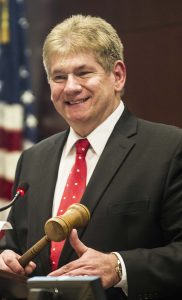
Gary Woronchak
Professional & Personal Life
Gary Woronchak is an experienced politician and long-time Editor of the Dearborn Press & Guide. No other candidate comes into the race for Mayor with as many years of experience in governance, or as deep of a knowledge of the history of the city of Dearborn and her machinations.
His early years as a reporter involved covering controversies regarding Orville Hubbard’s latter years, and in his first run for public office he ran as a Republican against Orville Hubbard’s long-time aide and friend, Maureen Keane-Doran.
Gary Woronchak is a dedicated husband, a grandfather and generally well-liked by those who know him. One of the cleanest candidates in Dearborn history, no air of scandal or impropriety has ever swirled about him, whether within his previous campaigns or in his personal life.
Political Leanings: Center-Left
Gary Woronchak is hard to define for some, having changed political parties and political views over the last few decades.
Woronchak started out as a Republican politician for state representative who supported strong union and labor rights, strong social programs, but was socially conservative. Woronchak has said his political transformation began when the Michigan legislature pushed for gay marriage to be banned in the Michigan constitution. Woronchak was one of the few Republican opponents, stating at the time that the constitutional amendment was unnecessary. A pressure campaign was mounted against him where he ended up folding and voting to ban gay marriage, although the bill failed and had to be later ratified by voters at the ballot box in 2004.
Woronchak has said in subsequent talks with YAN that he was becoming uncomfortable with the orthodoxy within the Republican party that was being defined by hostility towards the LGBT community and minority groups like Muslims and Arab Americans after 9/11.
Woronchak switched to the Democratic party when he ran for county commissioner, and since then, his work on LGBTQ rights, including fighting hate crimes in Wayne County, earned him awards from LGBTQ organizations. He’s been recognized many times for his work on behalf of the Arab American community.
While some may hold his party switch against him, Woronchak was by every measure a progressive Republican and, later, a centrist Democrat during his time in office. Today, Woronchak’s views align as center-left. He has a general belief in developing consensus among various political groups, including those on the right, but his general views on political subjects align with those of the Democratic Party.
Accomplishments
Woronchak is seen as one of Dearborn’s most effective state representatives in the last three decades, passing a variety of bills in the Michigan legislature that supported the police and fire department, as well as bringing significant funds for local schools through the legislative process. His name is attached the passage of a variety of public acts, and his ability to steer funding to Dearborn is something he actually won through passing bills and stacking the deck in Dearborn’s favor.
As chair of the Wayne County Commission, Woronchak led the commission through the dark years under the Ficano administration, where he was credited with steering the county clear of bankruptcy during the jail controversy.
His prior work as a news editor for the Dearborn Press & Guide is well-respected, and he’s often seen as one of the last great newsmen from the era before the decline of local newspapers.
Campaign Strengths & Weaknesses
Out of all of the front-runners for Mayor, Woronchak comes into the race with the most challenges in terms of his campaign. For several elections he hasn’t had a strong campaign apparatus of door knockers and volunteers, and his fundraising for the state senate race against Sylvia Santana indicate he may only raise $70-80,000 in a race where some of his opponents are starting the race with that same amount.
He’s stated in conversations with YAN that he plans to run an aggressive and vigorous campaign that will reach voters where they’re at. His strengths come from the deep respect voters have from his decades of public service, as well as his general appeal across party and racial lines thanks to his even-handed approach to issues. A series front-runner who may stretch his campaign dollars to punch above his belt-weight, Gary Woronchak is a candidate to watch.
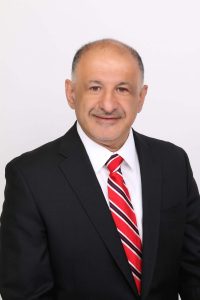
Hussein Berry
Professional & Personal Life
Hussein Berry’s well known for his work on school board, but much of his persona is wrapped up in one of Dearborn’s biggest points of pride: Fordson Football. A longtime coach and youth mentor, Berry has a long history of being involved in the schools and being outspoken as an advocate for parents and teachers. A Realtor by trade, Berry is well-liked and someone who is deeply respected within the community. Husband to Nofila Haidar and a devoted father, Berry, often called “Sine” by his friends, is someone that many in the community know well, even if he doesn’t always put the spotlight on himself as much as other local politicians do.
Political Leanings: Center-Left
Hussein Berry is a longtime Dearborn Democratic club board member and an activist by every measure. He’s worked to raise awareness on a variety of issues like the environment and education, and has a long history of working to raise turnout for the Democratic party during presidential elections.
Where Berry tends to be more moderate has been on issues of taxation. Transparent to a fault, he’s often been at odds with other school board trustees who want to label millages “tax renewals,” with strong feelings that each millage should be examined on its own merit.
Accomplishments
While most candidates are likely to wrap themselves in what they’ve done or will do to fight COVID, Berry has, perhaps, the most stellar resume here. Last year, during his tenure as President of the Dearborn school board, he opened up meetings to parents who had concerns, setting no time limit on comments and running the meetings for more than six hours in some cases. He was adamant that every voice would be heard.
His leadership during COVID is widely respected by parents across the political and racial spectrum, and his out-front leadership style gave parents confidence in the schools, even while the Mayor of Dearborn was largely absent during most of the crisis.
Since the school budget is significantly larger, and the schools have more employees than the city, Berry’s work on successive budgets for the schools put his experience in center stage. As a business person, he’s known for having strong management and leadership skills that may translate well into being Dearborn’s mayor.
Campaign Strengths & Weaknesses
Hussein Berry isn’t known as a strong fundraiser, but he’s known for pulling off surprise victories in spite of opposition. Skilled at door-knocking and with deep relationships with thousands of voters and their families, Berry is a sleeper candidate who is capable of producing a surprise win.
Berry’s listening skills, his admiration from parents and his strong relationships with voters will likely surprise opponents who count him out. His strong association with the local Democratic club means he’ll have the support of many longtime activists who aren’t afraid to walk outside and knock on voter’s doors or give them a call to win their vote.
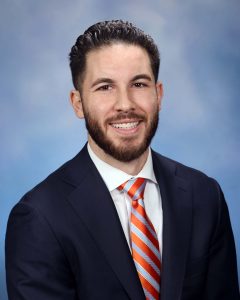
Abdullah Hammoud
Professional & Personal life
State Representative Abdullah Hammoud is the youngest of Dearborn’s candidates for mayor, about the same age Mayor Michael Guido was when he successfully ran for Mayor in 1985. Recently married to Dr. Fatima Beydoun, Abdullah Hammoud isn’t known to have any personal controversy. He’s served as Dearborn’s state representative for the last four years. Hammoud has two masters degrees, one in public health, and the other in business administration, both of which are from the University of Michigan.
Political Leanings: Strong Left
Abdullah Hammoud was an early supporter of Bernie Sanders and has been a self-described progressive Democrat since his start into office. Taking strong stances on progressive issues like supporting Medicare For All put him in the strong left category of political opinion.
Hammoud is not known for working towards consensus with those whose opinions he disagrees and his advocacy for a local environmental ordinance was marked by rancor with city council-members. Conflict between him and Councilman David Bazzy spilled out into the open even as the environmental ordinance was adopted. His advocacy and more confrontational style have yielded results in other areas, though. Hammoud started out his campaign for Mayor saying he supports lowering Dearborn’s taxes, which may be an early signal that he intends to moderate his political persona as he enters into his first non-partisan election.
Accomplishments
Where Hammoud has shone is in his grassroots activism. He organized protests at several state air quality meetings which helped block or delay the growth of pollution in Dearborn’s South End. His advocacy on the environment, and health care, leave him well respected by activists and civil rights organizations.
Hammoud also took center stage shortly after coming into office, protesting former President Donald Trump’s Muslim ban, making a memorable speech at the Detroit Metro Airport that left onlookers in tears.
Hammoud is likely to draw attention to his legislative work as a candidate, where Hammoud has passed four public acts in four years related to public health and the 21st century jobs trust fund.
The majority of Hammoud’s passed bills have been non-binding resolutions, which are like statements of support, usually commemorating holidays and have no force of law.
Hammoud recently promoted a series of proposals for small business tax incentives that he claimed to YAN had both Republican and Democratic support, but his work on the issue hasn’t materialized. He even recently promoted on his own Facebook page one of his amendments being struck down.
Mistakes on some of his early legislative efforts, like putting the wrong strike-through on a gun rights bill, accidentally turned his proposal to ban guns in police stations into a ban on all handguns in Michigan. These mistakes drew criticism from gun rights activists and forced Hammoud to apologize and correct the bill, which did not end up passing.
Campaign Strengths & Weaknesses
Out of all the candidates for Mayor, no candidate starts in a stronger position in terms of their campaign apparatus and financial strength. His most recent campaign finance statement showed he had more than $57,000 in the bank for his state representative committee, he has an early union endorsement from the Carpenters and Millwrights, and his fundraising will likely win him another $70-100,000 in funding by the end of the primary, a sum of money he’s easily raised in the past.
Hammoud also has a dedicated team of grassroots activists that have supported his efforts. He’s already sent out mailers, texts and calls to voters, and he’s expected to run an aggressive campaign that will have more money and manpower than any other candidate. This juggernaut of a campaign will shore up any of his weaknesses and gives him the flexibility to define himself as he chooses. Hammoud has already shown an ability to overwhelm opponents with the sheer volume of his mailers, advertising and one-to-one campaign conversations.
Editor’s note and disclosure: Abdullah Hammoud and Brian Stone (author) both ran in the 2016 state legistlative primary for the Democratic Party in house district 15. Abdullah Hammoud won.


